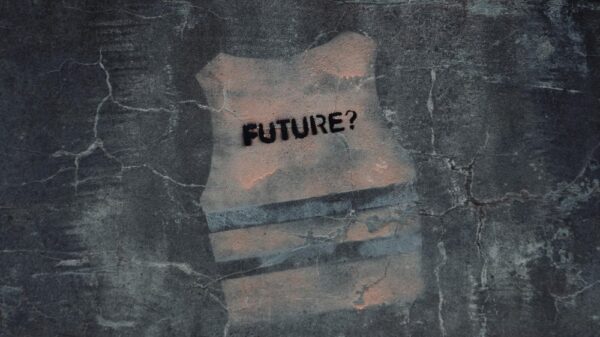As the movie opened, I found myself slipping into thecharacters’ shoes, invested in their struggles, and electrified by the plot twists. Picture this: 2073, a year that could define our collective future. This cinematic behemoth has launched a thousand watercooler debates, refusing to stay above the cultural fray, as people worldwide thrash out their differences. In his latest opus, filmmaker Ethan Caulder delivers a brutal vision of a world sliding towards disaster – where the air is toxic, innovation has metastasized, and humanity itself is fighting for survival. The opportunities, the advancements, the sheer thrill of it all is exhilarating. a topic that’s got everyone talking is What message is this film trying to convey – a fancy what-if scenario or a warning signal for our time?

The Storyline That Strikes a Chord
Set in a world devastated by decades of unchecked climate change, 2073 chronicles the journey of two protagonists: Ayla, a climate refugee from submerged Jakarta, and Dorian, an AI rights activist in a mega-city where robots outnumber humans. As the spotlight shines on trailblazers on the cusp of monumental breakthroughs, the movie starkly reveals the constant tug-of-war between human curiosity and our primordial will to survive. Expect to squirm in your seat as this unflinching narrative confronts us with unwelcome realities about our shared destiny, stubbornly refusing to look away.
While this film captivates with its serpentine plot and ravishing visuals, the questions it raises are the real clincher, subtly rewiring our thinking and making this an encounter that lodges itself firmly in the memory. Are we, as a society, barreling toward a reality eerily similar to the one depicted?
We are seeing 2073 global discussions on various topics and this is a signal that society is hooked on the ideas raised in the film. If you have not watched 2073 yet, just use the Kodi streaming platform. If there are any problems with accessing or downloading content, just use VeePN for Kodi platform. VeePN will help make any content available and can reduce download delays.
Themes That Hit Home
A core theme in 2073 is technology’s role in reshaping humanity. Every aspect of life in this movie’s universe is mediated by machines, which control the natural world, police human behavior, and dictate who we interact with. Today, AI can both help and stalk or arrange hacker attacks. More and more people choose to use free VPN VeePN – this is the answer to modern cybersecurity challenges, including those related to AI. Although we might have had our doubts, numbers don’t lie – we’re witnessing remarkable advancements in automation that were previously unheard of. Automation is on the move, and fast: by 2024, AI will surge by 34%, affecting an astonishing 80 million jobs globally – that’s a third of the workforce facing a radical makeover.
Echoes of natural disaster resound as we watch entire ecosystems collapse before our eyes. Ruins stretch as far as the eye can see, a desolate testament to a time when life burst forth in vibrant colors. A stark reality check: By 2050, human actions will have caused a staggering number of species – over a million, experts warn – to teeter on the edge of disappearance.
And then there’s the societal divide. The gap between technological elites and marginalized communities in 2073 feels unnervingly plausible, echoing today’s digital divide, where nearly 3 billion people still lack internet access.

The Divided Response
However, not everyone sees 2073 as a wake-up call. By dwelling on the darker side, some argue it might counterproductively harden us to the harsh realities instead of compelling us to make a difference. But tech insiders are saying the movie gets it wrong, charging that it stifles excitement around discoveries that could engineer a better world – one where pressing concerns like disease, hunger, and climate change are a thing of the past.
On the other hand, environmentalists have embraced the film as a rallying cry. Organizations such as the Global Green Initiative have cited 2073 in campaigns, urging policymakers to act before it’s too late. In a press conference, climate scientist Dr. Elena Vasquez stated, “This movie is not just entertainment. It’s a mirror held up to humanity, and we cannot afford to look away.”
Lessons for the Present
If 2073 has taught us anything, it’s that the choices we make today ripple far into the future. Imagine if we all took tiny steps: trimmed our carbon footprint, demanded fair AI practices, and refused to accept a digital divide. The collective impact would be enormous, sending us hurtling toward a future that’s more equitable and just.
Through a subtle yet masterful touch, the filmmakers skillfully tease out the connection between the stories we tell and the societal beliefs we form as a result. Much like how sports unite people across divides—think of the billions who tune in to stream major events online—movies like 2073 create shared experiences that transcend borders, igniting dialogue and action.
Conclusion: Vision or Warning?
The answer to whether 2073 is a vision of humanity’s future or a warning for today depends largely on us. We’re living in a time of disquiet, where tech advancements, eco-crises, and social fractures are spinning out of control. The film jumps into this maelstrom, shouting “beware” and “stand up”.
Perhaps the question is not whether such a future is inevitable but rather, what are we willing to do to prevent it? 2073 leaves that choice in our hands—and if its success is any indication, the world is paying attention.
